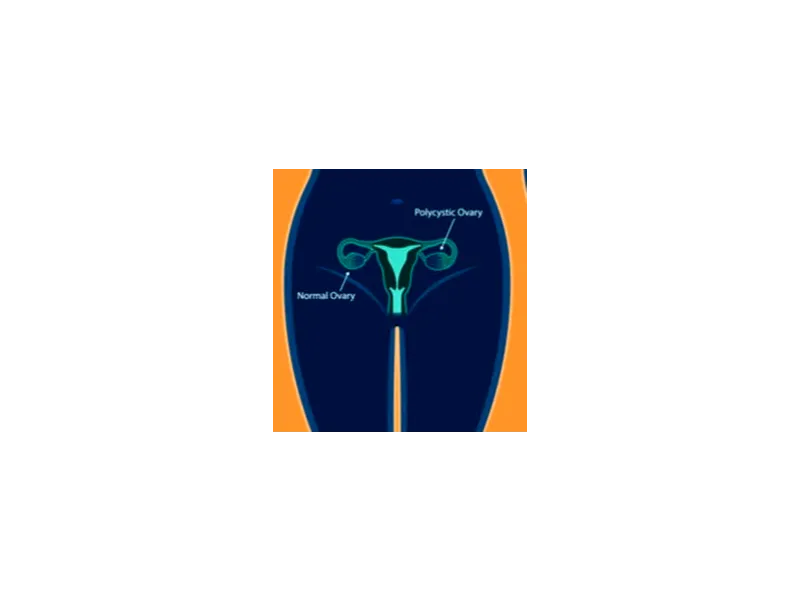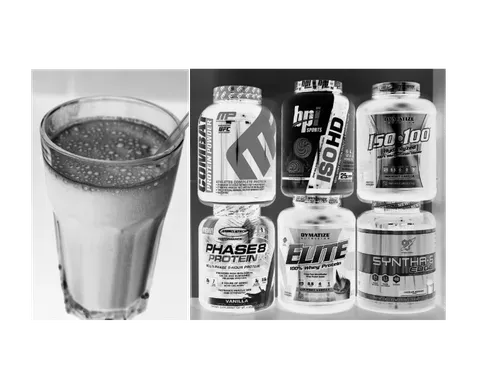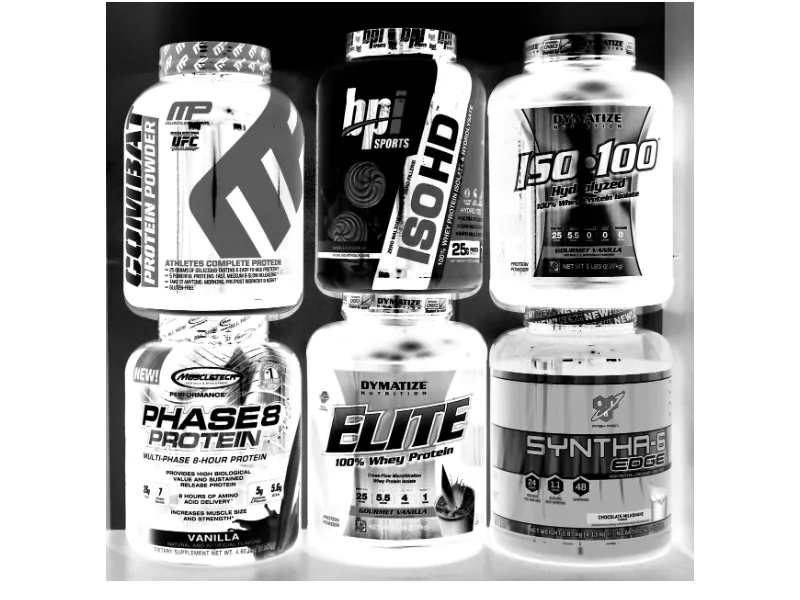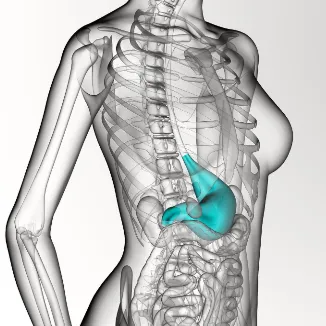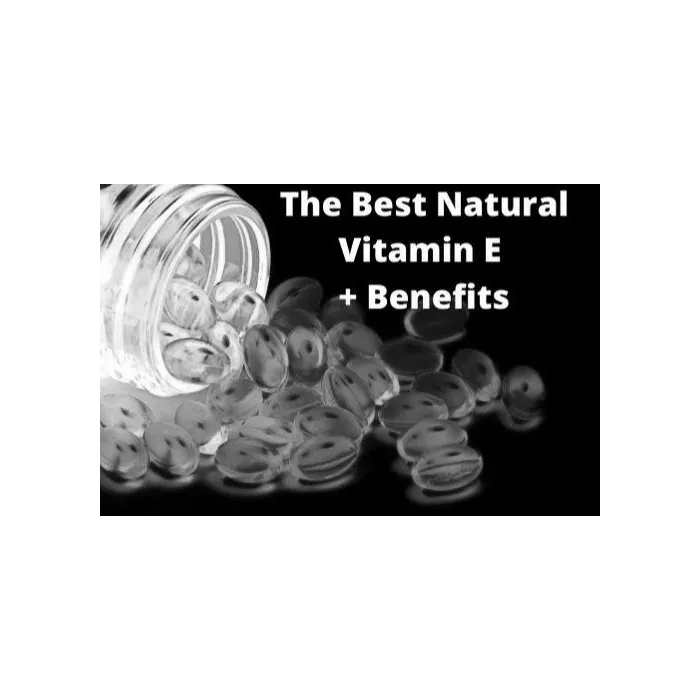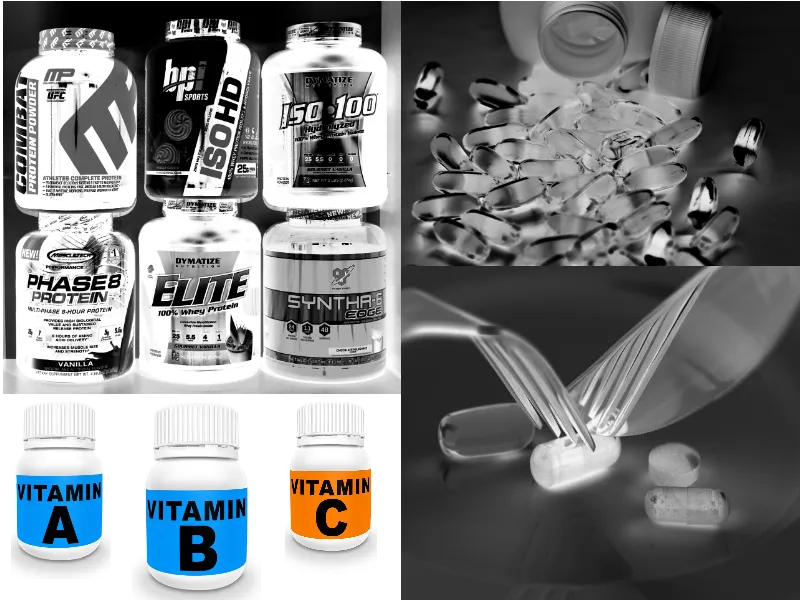Postnatal vitamins
What Are Postnatal Vitamins?
Postnatal vitamins are specifically designed for women who have recently given birth or are breastfeeding. They contain nutrients that a woman may not be getting from her diet as well as additional vitamins and minerals that may help with lactation and other postpartum needs. Postnatal vitamins are different than prenatal vitamins, which are taken during pregnancy to aid in the development of the baby. Postnatal multivitamins are specially formulated to meet a breastfeeding mother's needs and typically include higher levels of certain nutrients such as iron, calcium, and folic acid. They may also contain higher levels of B-vitamins, vitamin D, and A than your average multivitamin. Taking postnatal vitamins during the postpartum period can help ensure that you get all the nutrition needed for both you and your baby while breastfeeding.
It is important for women who are breastfeeding to get enough nutrients to support their own health and the health of their newborn. Postnatal vitamins can help to ensure that a woman is getting the nutrients she needs during this time, but they should not be used as a replacement for a healthy, balanced diet. It is always best to speak with a healthcare provider before starting any new supplement regimen.
These Top 5 make our Top Selection List:
How we choose:
We've read through & researched countless reviews on Amazon and other Authoritative Sources and Researched Data to find some of the best of the best Postnatal Vitamins supplements for immune support, muscle strength, muscle recovery, athletic endurance and sleep.
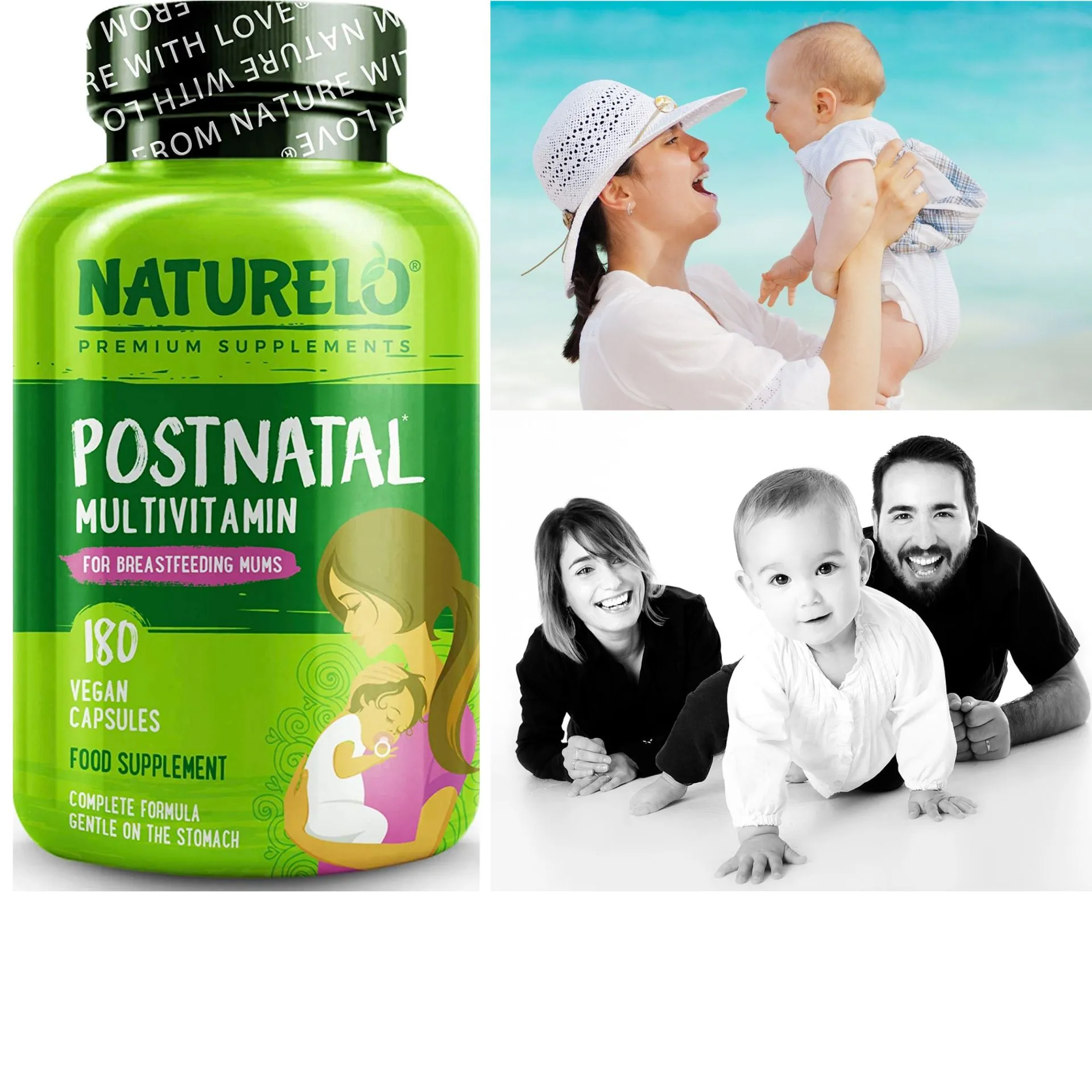
Why Naturelo Postnatal Vitamins
Made Our Best of The Best Top 8 & Why we love it
It is helpful & reassuring to know
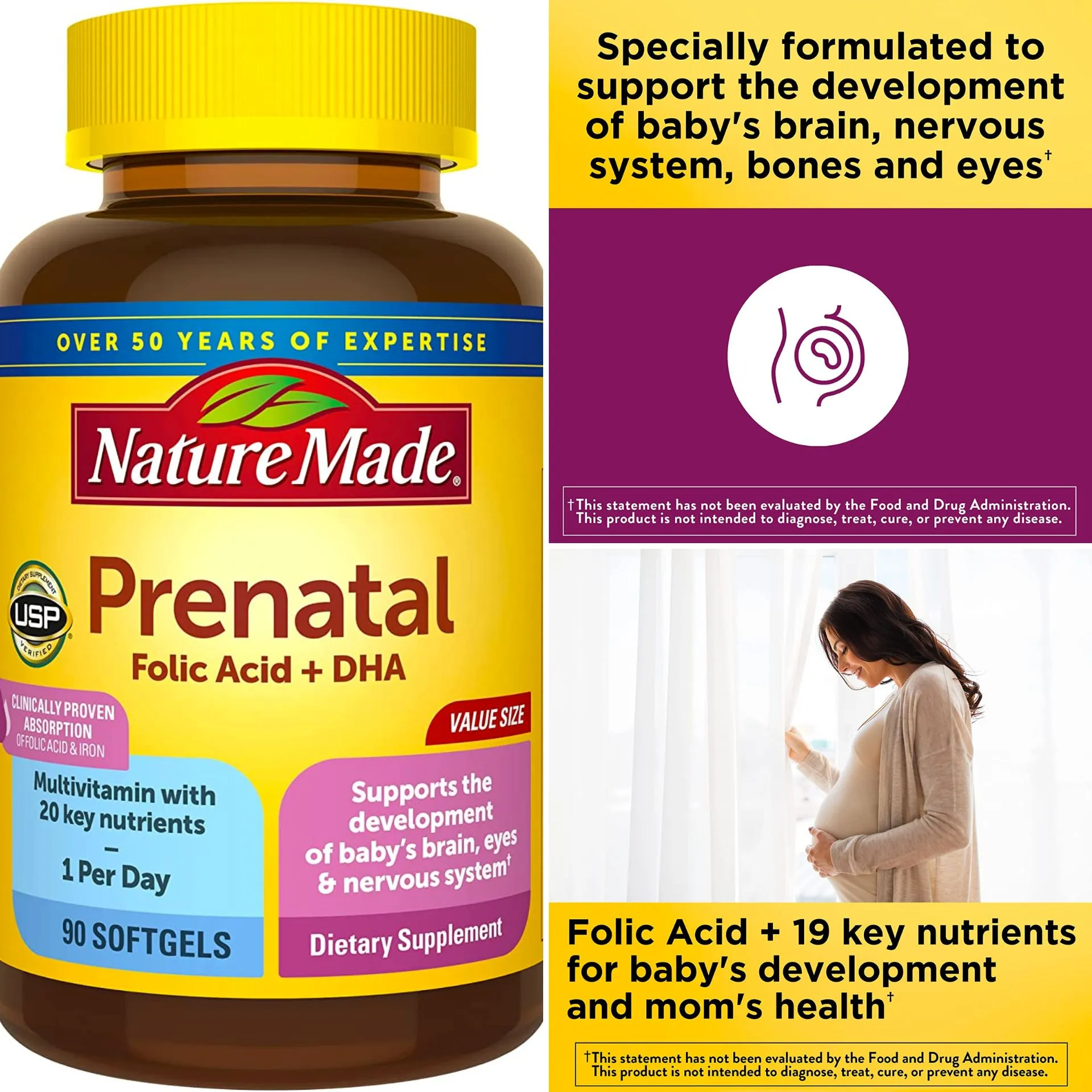
Why Nature Made Prenatal
Made Our Best of The Best Top 8 & Why we love it
It is helpful & reassuring to know
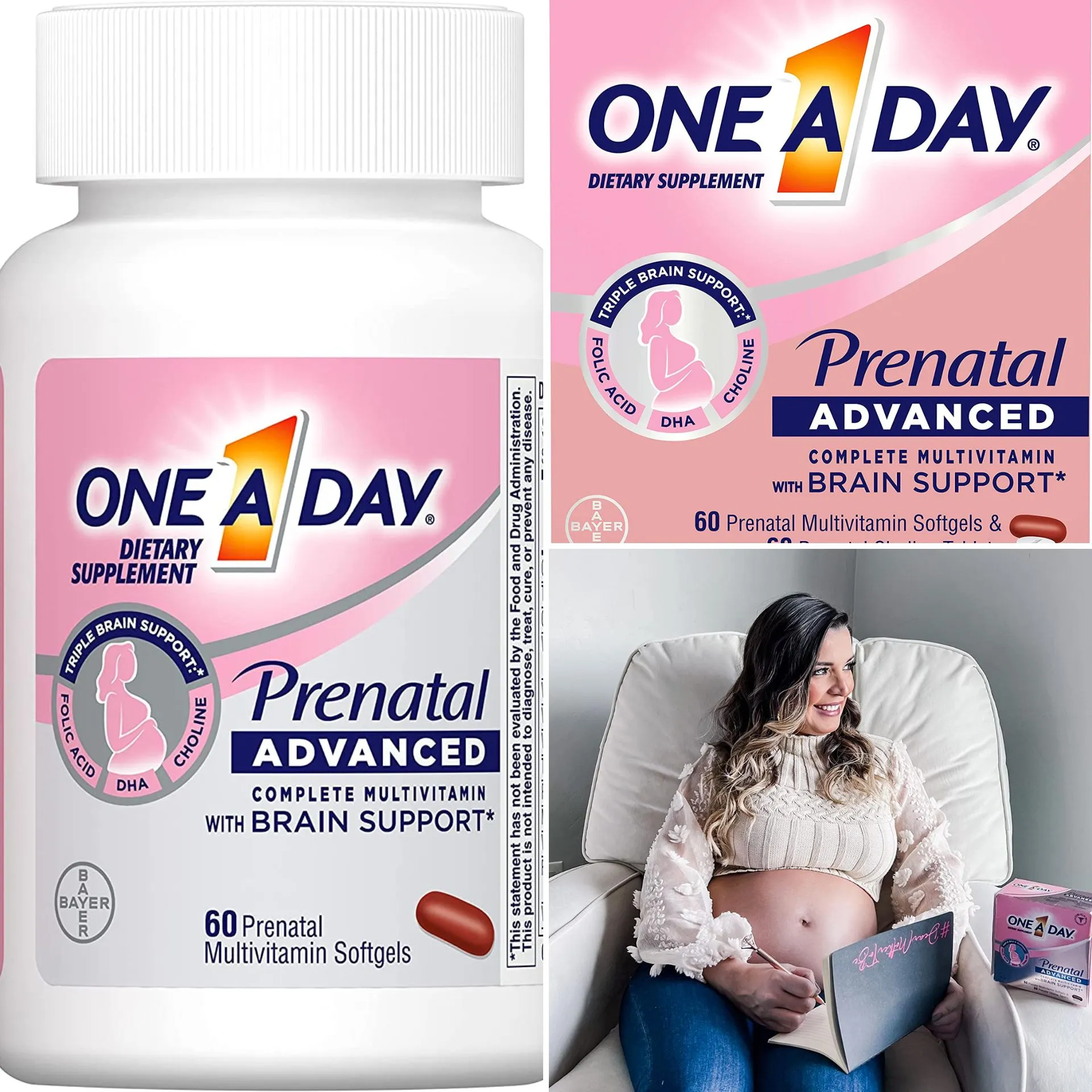
Why One a Day Prenatal
Made Our Best of The Best Top 8 & Why we love it
It is helpful & reassuring to know
This prenatal brand is recommended by OBGYN, gluten free, and free of artificial sweeteners, flavors, wheat, and dairy. It also supplies 100% of the daily value of folic acid.
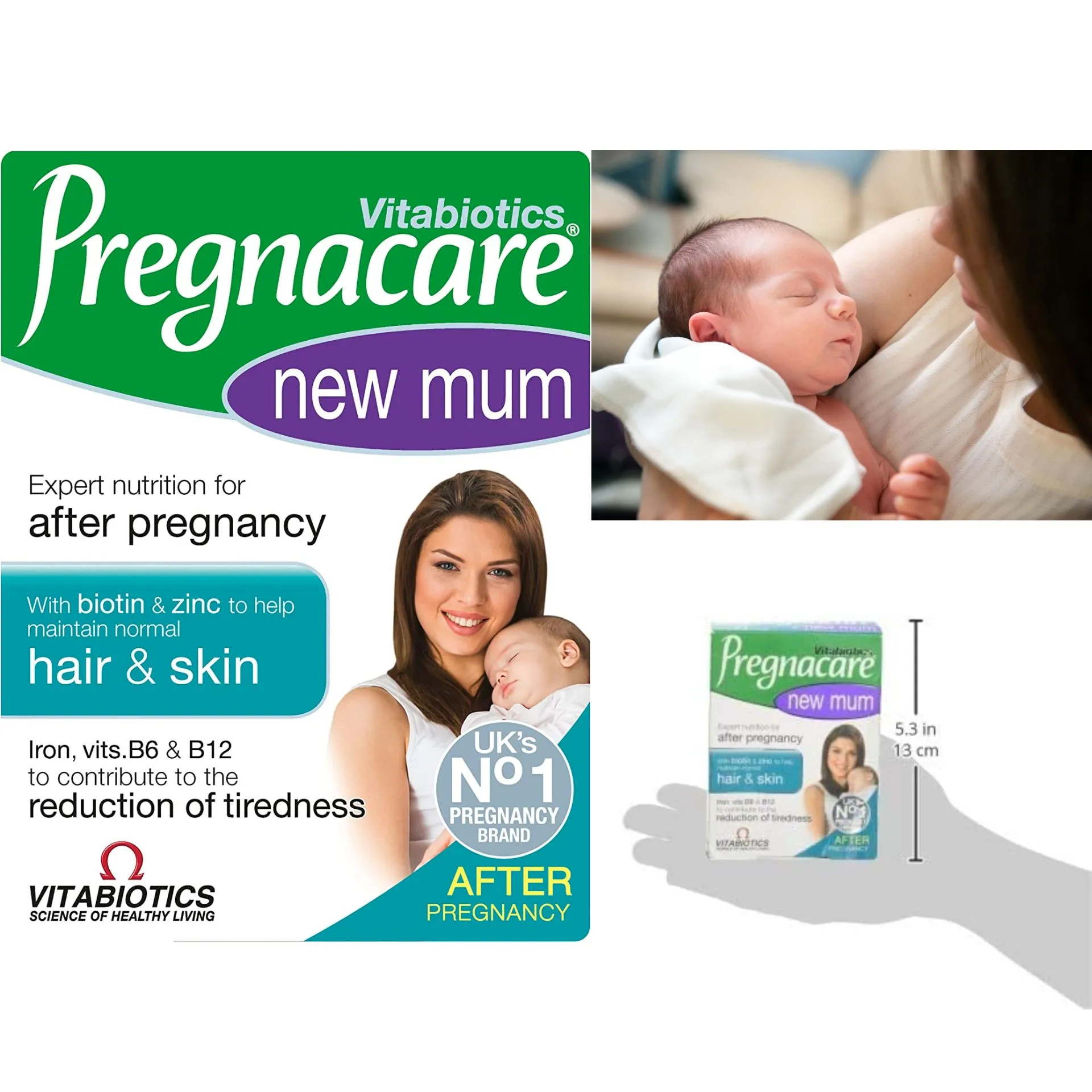
Why Vitabiotics Pregnacare
Made Our Best of The Best Top 8 & Why we love it
B complex vitamins, such as vitamins B2, B3 and B12 and pantothenic acid, are included in Pregnacare New mum to aid in the production of energy after childbirth. The natural production of red blood cells can be aided by vitamins B6, B12 and folic acid. haemoglobin is the molecule responsible for carrying oxygen throughout the body, and iron aids in the development of it.
This innovative formula helps to fight fatigue and tiredness by offering beneficial vitamins and minerals such as Vitamins B12 and Iron, as well as other components like Marine Collagen and Grape Seed Extract. The essential vitamins and minerals are included in the product.
It is helpful & reassuring to know
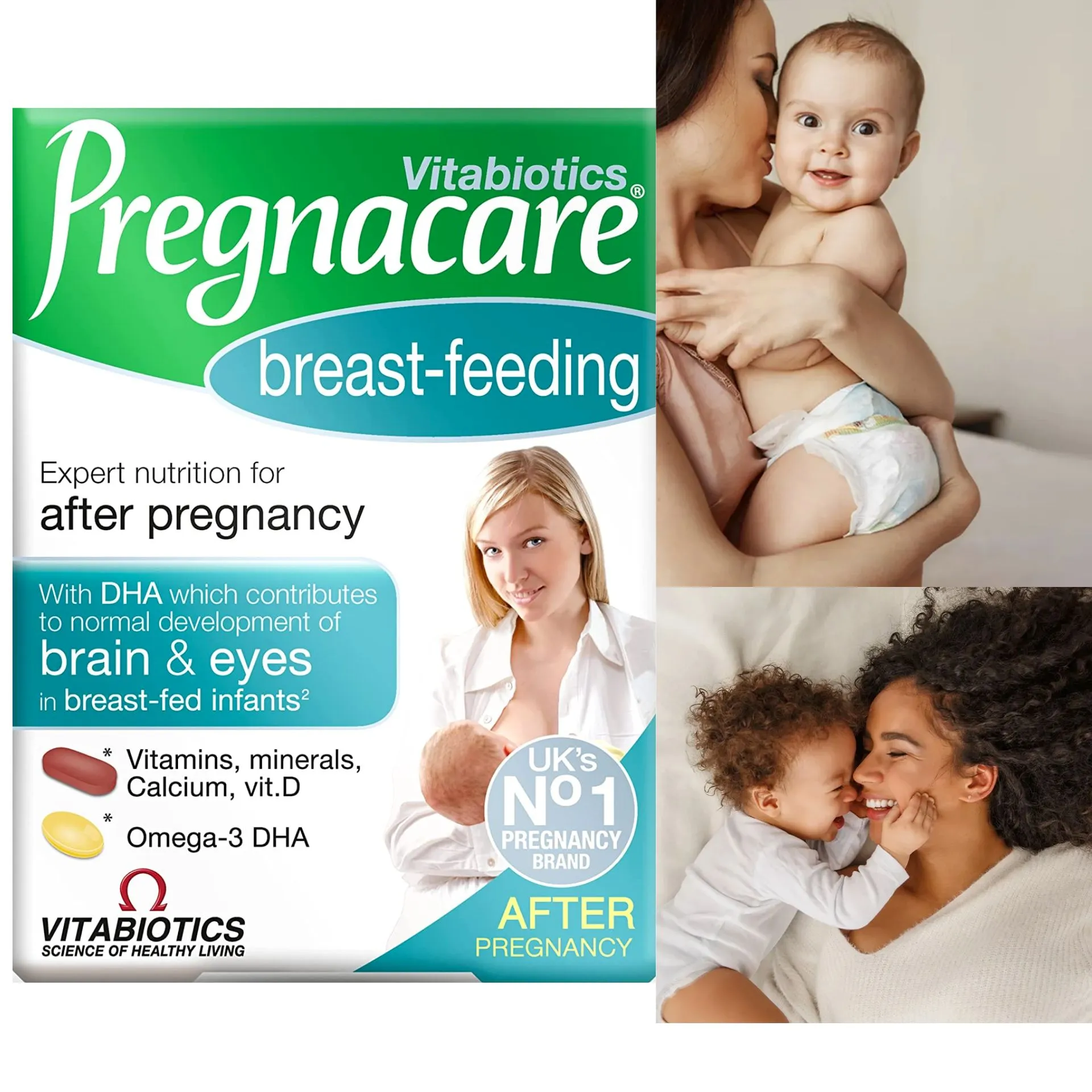
Why Vitabiotics Pregnacare
Made Our Best of The Best Top 8 & Why we love it
It is helpful & reassuring to know
Knowledge Base
Postnatal Vitamin
Good Postnatal
Best Postnatal Vitamins of 2022
Nutrient
Postpartum
Take Postnatal Vitamins
Multivitamin
Postnatal Multivitamin
Important Nutrients
Postnatal Vitamin
Prenatal
Take Postnatal Vitamins
Nutrient
Breastfeed
Good Postnatal
Hair Loss
Choline
Capsule
Multivitamin
Nature Made
Essential Postnatal
Calcium
Prenatal and Postnatal Vitamins
Postnatal Multivitamin
One A Day
Prenatal or Postnatal
Postnatal Vitamins Include
Chewable Postnatal
Nutrient Needs
Prenatal Formula
Smartypants Prenatal
Breastfeeding Moms
FAQ
What Do Postnatal Vitamins Include?
Postnatal vitamins typically include a range of nutrients that are important for the health of a woman who is breastfeeding or has recently given birth. These nutrients may include:
- Folic acid: This B vitamin is important for the development of the baby's brain and spinal cord. It is also important for the mother's health, as it can help to prevent certain birth defects.
- Iron: Iron is important for the production of red blood cells and the transport of oxygen throughout the body. It is especially important for women who are breastfeeding, as they may be at risk of iron deficiency due to the loss of blood during childbirth and the increased demand for iron during lactation.
- Calcium: Calcium is important for the development of strong bones and teeth in the baby. It is also important for the mother's health, as it helps to maintain strong bones and may reduce the risk of osteoporosis later in life.
- Vitamins D and B6: These vitamins are important for the development of the baby's bones and immune system. They may also help to reduce the risk of certain health problems, such as preterm labor and gestational diabetes, in the mother.
Some postnatal vitamins may also contain other nutrients such as omega-3 fatty acids, probiotics, and herbs that are thought to have health benefits for the mother and baby. It is always best to speak with a healthcare provider before starting any new supplement regimen to ensure that the specific postnatal vitamin you are considering is appropriate for your needs.
Postnatal vitamins are an important nutrient for breastfeeding women and their babies. Postnatal vitamins include essential ingredients such as calcium, DHA, and choline to help meet the nutritional needs of both mother and baby. Calcium helps to support strong bones in both mom and baby while DHA is an omega-3 fatty acid that aids in brain development in infants.
Choline is another essential nutrient found in postnatal vitamins which helps with early learning skills and memory formation. Prenatal and postnatal vitamins are designed to help meet the nutritional needs of pregnant women and breastfeeding mothers.
Omega-3 fatty acids are also found in postnatal vitamins, which can help reduce inflammation, improve heart health, and provide anti-inflammatory benefits for both mother and baby. All these nutrients together can ensure that mom and baby are getting all the necessary nutrition for optimal health during this special time of new life!
What’s the Difference Between Prenatal and Postnatal Vitamins?
Prenatal vitamins and postnatal vitamins are both types of dietary supplements that are specifically formulated for women who are pregnant or have recently given birth, respectively. However, there are some key differences between the two types of vitamins:
- Nutrient content: Prenatal vitamins are specifically formulated to support the nutritional needs of a woman during pregnancy, while postnatal vitamins are formulated to support the nutritional needs of a woman during the postnatal period (the time after childbirth).
- As a result, the nutrient content of these two types of vitamins may be slightly different. For example, prenatal vitamins may contain higher levels of certain nutrients such as folic acid, iron, and calcium, which are important for fetal development and the mother's health during pregnancy. Postnatal vitamins may contain these same nutrients, but at lower levels, as well as other nutrients that are important for the health of the mother and baby during the postnatal period.
- Timing: Prenatal vitamins are typically taken during pregnancy, while postnatal vitamins are taken after childbirth, typically while breastfeeding.
- Dosage: Prenatal and postnatal vitamins may have different recommended dosages depending on the specific product. It is important to follow the dosage instructions provided by the manufacturer or as recommended by a healthcare provider.
It is important for women who are pregnant or breastfeeding to get enough nutrients to support their own health and the health of their baby. Prenatal and postnatal vitamins can help to ensure that a woman is getting the nutrients she needs during these times, but they should not be used as a replacement for a healthy, balanced diet. It is always best to speak with a healthcare provider before starting any new supplement regimen.
Prenatal and postnatal vitamins are important for a healthy pregnancy and postpartum period. Prenatal vitamins are taken during pregnancy to provide the mother and baby with the nutrients they need. These vitamins typically include certain vitamins, minerals, and folate.
Postnatal vitamins include nutrients like iron, calcium, vitamin D, omega-3 fatty acids, and zinc to help support breastfeeding mothers and reduce hair loss during the postpartum period. Prenatal vitamins should be taken before conception and throughout the entire pregnancy, while postnatal vitamins are recommended for up to six months after giving birth. Both types of vitamins are essential for a healthy mother and baby during this important time in life.
Should I Take Prenatal or Postnatal Vitamins?
Whether you should take prenatal or postnatal vitamins depends on your specific nutritional needs and the stage of your reproductive cycle.
Prenatal vitamins are specifically formulated to support the nutritional needs of a woman during pregnancy. They contain a range of nutrients that are important for fetal development and the mother's health during pregnancy, including folic acid, iron, calcium, and vitamins D and B6. Prenatal vitamins are typically recommended for women who are trying to become pregnant, are pregnant, or are planning to become pregnant in the near future.
Postnatal vitamins are formulated to support the nutritional needs of a woman during the postnatal period, which is the time after childbirth when the mother's body is recovering from the physical demands of pregnancy and childbirth. They typically contain a range of nutrients, including folic acid, iron, calcium, and vitamins D and B6, as well as other nutrients such as omega-3 fatty acids, probiotics, and herbs that are thought to have health benefits for the mother and baby. Postnatal vitamins are typically recommended for women who are breastfeeding or have recently given birth.
It is important for women who are pregnant or breastfeeding to get enough nutrients to support their own health and the health of their baby. Prenatal and postnatal vitamins can help to ensure that a woman is getting the nutrients she needs during these times, but they should not be used as a replacement for a healthy, balanced diet. It is always best to speak with a healthcare provider before starting any new supplement regimen to determine the appropriate type and dosage of vitamin for your needs.
Prenatal and postnatal vitamins are both important for the health of mother and baby, but they are different and should be taken at different times. Prenatal vitamins should be taken during pregnancy, while postnatal vitamins may be fine to take after you have given birth.
It is generally recommended that you continue taking a prenatal vitamin even after giving birth, as it can help with healing and recovery. Postnatal vitamins may also provide additional benefits after childbirth, such as improved digestion and increased energy levels.
It is best to consult your doctor before taking either type of vitamin, to ensure that you are getting the right kind of nutrients for your body. Ultimately, it is up to you whether to take prenatal or postnatal vitamins – but whichever option you choose, make sure you follow the instructions carefully for the best results.
Are There Nutrients That Individuals Should Increase While Breastfeeding?
Breastfeeding women have increased nutritional needs compared to non-pregnant, non-lactating women due to the physical demands of lactation and the need to support the growth and development of the infant. Some nutrients that individuals may need to increase while breastfeeding include:
- Calcium: Calcium is important for the development of strong bones and teeth in the infant. Breastfeeding women should aim to consume at least 1000 milligrams of calcium per day. Good sources of calcium include dairy products, leafy green vegetables, and fortified foods and beverages.
- Iron: Iron is important for the production of red blood cells and the transport of oxygen throughout the body. Breastfeeding women may be at risk of iron deficiency due to the loss of blood during childbirth and the increased demand for iron during lactation. It is important for breastfeeding women to consume enough iron to support their own needs and the needs of their baby. Good sources of iron include red meat, poultry, fish, beans, and fortified cereals.
- Protein: Protein is important for the growth and development of the infant. Breastfeeding women should aim to consume at least 71 grams of protein per day. Good sources of protein include meat, poultry, fish, eggs, beans, and dairy products.
- Vitamin D: Vitamin D is important for the development of the infant's bones and immune system. It is also important for the mother's health, as it helps the body absorb calcium and may reduce the risk of osteoporosis later in life. Breastfeeding women should aim to consume at least 600-800 IU of vitamin D per day. Good sources of vitamin D include fortified milk, fatty fish, and supplements.
It is important for breastfeeding women to consume a balanced diet that includes a variety of nutrient-rich foods to meet their increased nutritional needs. It is always best to speak with a healthcare provider before starting any new supplement regimen to determine the appropriate dosage and type of supplements for your needs.
During the postpartum period, it is important for mothers to take care of their health and nutrition in order to breastfeed. In addition to a balanced diet, there are specific nutrients that individuals should increase while breastfeeding. A postnatal multivitamin can supply key vitamins and minerals to fill any gaps in nutrition during this time. It should include choline, folate, and vitamin B12 per serving. Choline helps with healthy brain development, folate supports cell growth and development, while Vitamin B12 helps maintain healthy energy levels.
Additionally, some multivitamins may also contain nutrients like vitamin D3 and omega-3 fatty acids which are important for the mother's health as well as the baby's. Lastly, if there is any risk of an allergen in the household it is essential to supplement with additional nutrients like vitamin C which can help protect against allergies. Taking a postnatal multivitamin can help ensure that both mother and baby receive all of the necessary nutrients during the postpartum period.
Do you need postnatal vitamins?
Whether or not a woman needs postnatal vitamins depends on her specific nutritional needs and the quality of her diet. Postnatal vitamins are a type of dietary supplement that is specifically formulated for women who are breastfeeding or have recently given birth. These vitamins are designed to support the nutritional needs of a woman during the postnatal period, which is the time after childbirth when the mother's body is recovering from the physical demands of pregnancy and childbirth.
Postnatal vitamins typically contain a range of nutrients, including folic acid, iron, calcium, and vitamins D and B6, as well as other nutrients such as omega-3 fatty acids, probiotics, and herbs that are thought to have health benefits for the mother and baby. They are intended to help ensure that a woman is getting the nutrients she needs during this time, but they should not be used as a replacement for a healthy, balanced diet.
It is important for women who are breastfeeding to get enough nutrients to support their own health and the health of their newborn. If a woman is concerned about her nutrient intake or is not able to meet her nutritional needs through diet alone, she may benefit from taking postnatal vitamins. However, it is always best to speak with a healthcare provider before starting any new supplement regimen to determine the appropriate type and dosage of vitamins for your needs.
Taking a postnatal vitamin after giving birth is essential for the health of both the mother and baby. Postpartum women require higher amounts of certain vitamins and minerals to support their recovery, lactation, and general wellbeing.
Vitamin B12, calcium, choline, and other nutrients are all important for postpartum mothers to have at adequate levels. If these levels are not met through diet alone, then taking a postnatal vitamin can be beneficial in getting enough of these vital vitamins and minerals.
Postnatal vitamins can help prevent hair loss or thinning due to nutrient deficiency and also boost lactation levels to help with breastfeeding. It is important that postpartum mothers consider taking a postnatal vitamin as it will provide them with necessary vitamins and minerals they need during this time of recovery.
Is a postnatal vitamin necessary?
Whether or not a woman needs a postnatal vitamin depends on her specific nutritional needs and the quality of her diet. Postnatal vitamins are a type of dietary supplement that is specifically formulated for women who are breastfeeding or have recently given birth. These vitamins are designed to support the nutritional needs of a woman during the postnatal period, which is the time after childbirth when the mother's body is recovering from the physical demands of pregnancy and childbirth.
Postnatal vitamins typically contain a range of nutrients, including folic acid, iron, calcium, and vitamins D and B6, as well as other nutrients such as omega-3 fatty acids, probiotics, and herbs that are thought to have health benefits for the mother and baby. They are intended to help ensure that a woman is getting the nutrients she needs during this time, but they should not be used as a replacement for a healthy, balanced diet.
It is important for women who are breastfeeding to get enough nutrients to support their own health and the health of their newborn. If a woman is concerned about her nutrient intake or is not able to meet her nutritional needs through diet alone, she may benefit from taking a postnatal vitamin. However, it is always best to speak with a healthcare provider before starting any new supplement regimen to determine the appropriate type and dosage of vitamins for your needs.
Postnatal vitamins are a type of dietary supplement that are often recommended for women after giving birth. These supplements are intended to help women replenish their bodies with the essential nutrients it needs to recover from pregnancy and childbirth.
Postnatal vitamins contain many of the same ingredients as prenatal vitamins, such as folic acid and iron, but also usually include additional important nutrients like omega-3 fatty acids, vitamin D, and calcium. While they are not necessary for all new mothers, they may be beneficial if you have certain health conditions or nutritional deficiencies. It's best to consult your doctor before taking any type of postnatal supplement to ensure that it is right for you.
Is it OK to skip a prenatal vitamin?
It is not recommended to skip a prenatal vitamin. Prenatal vitamins are an important part of a healthy pregnancy, as they provide essential nutrients that are necessary for both the mother and the baby. They help reduce the risk of birth defects, promote healthy fetal growth and development, and can help prevent preterm labor and low birth weight.
Additionally, prenatal vitamins contain higher levels of certain vitamins and minerals than regular multivitamins, so skipping them can lead to deficiencies in these essential nutrients. For these reasons, it is important to take your prenatal vitamins as prescribed by your healthcare provider to ensure that you are getting all the nutrients you need for a healthy pregnancy.
Therefore It is generally not recommended to skip a prenatal vitamin if you are pregnant or planning to become pregnant. Prenatal vitamins are a type of dietary supplement that is specifically formulated to support the nutritional needs of a woman during pregnancy. They contain a range of nutrients that are important for fetal development and the mother's health during pregnancy, including folic acid, iron, calcium, and vitamins D and B6.
Prenatal vitamins are typically recommended for women who are trying to become pregnant, are pregnant, or are planning to become pregnant in the near future. They are intended to help ensure that a woman is getting the nutrients she needs during pregnancy, but they should not be used as a replacement for a healthy, balanced diet.
It is important for pregnant women to get enough nutrients to support their own health and the health of their baby. Skipping a prenatal vitamin may increase the risk of certain health problems, such as preterm labor and gestational diabetes, and may also increase the risk of certain birth defects.
If you are pregnant or planning to become pregnant, it is important to speak with a healthcare provider about your nutritional needs and whether taking a prenatal vitamin is appropriate for you.
How long should you take postnatal vitamins?
The length of time that a woman should take postnatal vitamins depends on her specific nutritional needs and the recommendations of her healthcare provider. Postnatal vitamins are a type of dietary supplement that is specifically formulated for women who are breastfeeding or have recently given birth. These vitamins are designed to support the nutritional needs of a woman during the postnatal period, which is the time after childbirth when the mother's body is recovering from the physical demands of pregnancy and childbirth.
Postnatal vitamins typically contain a range of nutrients, including folic acid, iron, calcium, and vitamins D and B6, as well as other nutrients such as omega-3 fatty acids, probiotics, and herbs that are thought to have health benefits for the mother and baby. They are intended to help ensure that a woman is getting the nutrients she needs during this time, but they should not be used as a replacement for a healthy, balanced diet.
It is generally recommended that women continue to take postnatal vitamins while breastfeeding to support their own health and the health of their newborn. However, the specific length of time that a woman should take postnatal vitamins will depend on her individual circumstances and the recommendations of her healthcare provider. It is always best to speak with a healthcare provider before starting any new supplement regimen to determine the appropriate length of time to take postnatal vitamins.
Postnatal vitamins are specially formulated to provide the complete range of nutrients needed by a woman and her baby after childbirth. It is important that women take postnatal vitamins during the first year after birth, as some essential nutrients are depleted in the body during this time.
Taking a postnatal vitamin can help replenish these nutrients and ensure optimal health for both mother and baby. Generally, it is recommended that you take postnatal vitamins for at least six months after birth, although some experts suggest taking them for up to one year.
Additionally, some women may benefit from taking a postnatal or prenatal vitamin during lactation and even into the postpartum period. Taking a prenatal vitamin is also beneficial for pregnant women, as it ensures adequate levels of essential nutrients throughout pregnancy and can help reduce the risk of certain complications.
What are the best postnatal vitamins in 2022?
In 2022, when looking for the best postnatal vitamins, it is important to consider all the nutritional needs of a new mom who has just given birth or is breastfeeding. A good postnatal vitamin should provide key nutrients like folate, vitamins and minerals that can help with lactation and hair loss.
Postpartum women also have special nutritional needs, so choosing the right postnatal supplement is essential. When you want to choose a postnatal vitamin, make sure it contains calcium as well as other important vitamins and minerals. Consider what your body needs most in order to replenish its stores after giving birth.
Additionally, look for postnatal vitamins with natural ingredients that are easily absorbed by your body. With so many options available in 2022, it can be tricky to choose the best postnatal vitamin for you – but if you look closely at the ingredients and do some research on what nutritional needs are specific to new moms, you’ll be able to find a good option that works for you.
If you are considering taking postnatal vitamins, it is important to speak with a healthcare provider to determine the appropriate type and dosage of vitamins for your needs. It is also important to carefully read the label and ingredient list of any postnatal vitamin you are considering to ensure that it contains the nutrients you need and does not contain any ingredients that you are allergic to or that may be harmful to you or your baby.
When should you switch to a postnatal vitamin?
When it comes to postnatal vitamins, the timing of when to switch over from prenatal vitamins can vary from woman to woman. Generally speaking, a woman should switch to a postnatal vitamin between 4-6 weeks after giving birth, or shortly after discontinuing breastfeeding.
Postnatal vitamins typically contain fewer iron and folic acid than prenatal varieties and may include other ingredients such as probiotics and omega-3 fatty acids that can help support a woman's health during the postpartum period. It is important to speak with your healthcare provider before making any changes in your diet or supplement regimen, as they will be able to provide personalized advice based on your individual needs.
It is generally recommended that women switch to a postnatal vitamin after they have given birth and are breastfeeding. Postnatal vitamins are a type of dietary supplement that is specifically formulated for women who are breastfeeding or have recently given birth. These vitamins are designed to support the nutritional needs of a woman during the postnatal period, which is the time after childbirth when the mother's body is recovering from the physical demands of pregnancy and childbirth.
During pregnancy, a woman's nutritional needs are higher due to the demands of fetal growth and development. Prenatal vitamins are a type of dietary supplement that is specifically formulated to meet the increased nutritional needs of a woman during pregnancy. Once a woman has given birth and is no longer pregnant, her nutritional needs return to normal and she may no longer need to take a prenatal vitamin.
It is important for women who are breastfeeding to get enough nutrients to support their own health and the health of their newborn. Postnatal vitamins can help to ensure that a woman is getting the nutrients she needs during this time, but they should not be used as a replacement for a healthy, balanced diet. It is always best to speak with a healthcare provider before starting any new supplement regimen to determine the appropriate type and dosage of vitamins for your needs.
When should I switch from prenatal to postnatal vitamins?
When it comes to switching from prenatal to postnatal vitamins, the timing is important. Generally speaking, women should begin taking postnatal vitamins once they have stopped breastfeeding or have finished their postpartum period. This usually happens anywhere from 4-6 weeks after giving birth. It is important to note that some women may need to continue taking prenatal vitamins for longer, depending on their individual needs.
Furthermore, if you are planning on becoming pregnant again soon, you may want to stay on your prenatal vitamins for a bit longer until you conceive again. Talk with your healthcare provider about the best time for you to switch over to postnatal vitamins and what supplements are best suited for your individual needs.
Does it matter if you switch prenatal vitamins?
It is generally not recommended to switch prenatal vitamins without consulting a healthcare provider. Prenatal vitamins are a type of dietary supplement that is specifically formulated to support the nutritional needs of a woman during pregnancy. These vitamins contain a range of nutrients that are important for fetal development and the mother's health during pregnancy, including folic acid, iron, calcium, and vitamins D and B6.
Prenatal vitamins are typically recommended for women who are trying to become pregnant, are pregnant, or are planning to become pregnant in the near future. They are intended to help ensure that a woman is getting the nutrients she needs during pregnancy, but they should not be used as a replacement for a healthy, balanced diet.
If you are pregnant or planning to become pregnant, it is important to speak with a healthcare provider about your nutritional needs and the appropriate type and dosage of prenatal vitamins for you.
Your healthcare provider can help you determine whether it is appropriate to switch prenatal vitamins and can provide guidance on how to do so safely. It is generally not recommended to switch prenatal vitamins without first consulting a healthcare provider, as doing so may disrupt your nutrient intake and potentially harm your health or the health of your baby.
When it comes to prenatal vitamins, it is important to be consistent. If you switch prenatal vitamins, it could affect your baby's development. Different brands of vitamins contain different ingredients and levels of nutrients, which can create an imbalance in your body that could be detrimental to your baby's health.
Additionally, the body needs some time to adjust to new vitamins, so switching back and forth without giving the body time to adjust can disrupt the absorption process. Therefore, it is best to talk with your doctor before switching prenatal vitamins so they can make sure you are taking the right ones for both you and your baby.
Is it better to take prenatal or postnatal vitamins?
When deciding whether to take prenatal or postnatal vitamins, it is important to consider your own needs and lifestyle. Prenatal vitamins are formulated specifically for pregnant women, providing them with essential nutrients needed during pregnancy. Postnatal vitamins are meant for nursing mothers, providing the necessary nutrition to help maintain a healthy breastmilk supply.
Ultimately, the best choice depends on your stage in life and what you need from your vitamin supplement. If you are pregnant or planning to become so soon, then taking prenatal vitamins is the best way to ensure that you and your baby receive the required nutrients for optimal health.
On the other hand, if you are nursing a baby, then postnatal vitamins can help provide an adequate supply of nutrients for both mother and child. In either case, consulting with your doctor about which option is right for you can help ensure that you make the most informed decision possible.
Can you take prenatal vitamins postnatal?
It is generally not recommended to take prenatal vitamins after the postnatal period. Prenatal vitamins are a type of dietary supplement that is specifically formulated to support the nutritional needs of a woman during pregnancy. These vitamins contain a range of nutrients that are important for fetal development and the mother's health during pregnancy, including folic acid, iron, calcium, and vitamins D and B6.
After childbirth, a woman's nutritional needs return to normal and she may no longer need to take a prenatal vitamin. However, it is important for women who are breastfeeding to get enough nutrients to support their own health and the health of their newborn.
Postnatal vitamins are a type of dietary supplement that is specifically formulated for women who are breastfeeding or have recently given birth. These vitamins are designed to support the nutritional needs of a woman during the postnatal period, which is the time after childbirth when the mother's body is recovering from the physical demands of pregnancy and childbirth.
It is generally not recommended to take prenatal vitamins after the postnatal period, as they are formulated to meet the specific nutritional needs of a woman during pregnancy and may not be appropriate for non-pregnant women. If you are breastfeeding or have recently given birth and are concerned about your nutrient intake, it is important to speak with a healthcare provider to determine the appropriate type and dosage of vitamins for your needs.
Prenatal vitamins are specially formulated to provide extra nutrition for pregnant women and their unborn babies. Some of the nutrients found in prenatal vitamins include folic acid, iron, calcium, and vitamin D. Postnatal vitamins are not as closely regulated as prenatal vitamins and may not contain the same levels of essential nutrients.
Therefore, it is generally not recommended to take prenatal vitamins postnatal. There are other alternatives available that can help meet your postnatal nutrient needs such as a multivitamin or an omega-3 supplement. It is best to consult with your doctor or healthcare provider before taking any new supplements or vitamins during the postpartum period.





